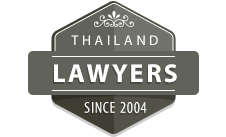Upon settling in Thailand, you’ll want to make sure you know the legal jargon for property title in Thailand. In this article, we’ll cover Nor Sor 3 Kor, Chanote, Possessory right, and Full title deed. In addition, we’ll explain what these terms mean. And, of course, why they are important. In addition, we’ll go over some of the main types of property titles in Thailand, including those that grant the legal right to build.
Nor Sor 3 Kor
If you are looking to transfer your Thai property title, you may want to know the differences between Chanote and Nor Sor 3 Kor. Chanote is the higher title for investors and is GPS surveyed with unique numbered posts. The document can be transferred in less than a day, while Nor Sor 3 Kor is not as precise, but is still the most common title type in Thailand. Chanote is a better option if you’re transferring a piece of land quickly.
Chanote
Unlike Torrens Title in Australia, the Thai land ownership system is based on the concept of several title deeds. Most land titles in Thailand are issued by the Land Department and fall into one of seven categories. Five of these titles are issued by government departments, but there are several important differences between them. The title deed in the land owner’s hand and the version in the land office are inherently susceptible to manipulation.
Possessory right
When transferring a title in Thailand, there are two types of possession: possessory right and usufruct. Possessory right is the least recommended type, as it has little substantiation by the Land Department or the Local Administrative Office. Possessory right is also not recognized for the registration of superficies or leases against land. It is possible to buy land in Thailand via possessory right, but you should seek legal guidance when buying a pre-construction property.
Full title deed
A full title deed is a legal document that grants full ownership and legal rights to a plot of land. These rights are necessary for selling, leasing, and transferring land. The deed also helps protect the property from interlopers. According to Thai law, owners must use the land they own or risk the Land Department repossessing it for five years. In addition, having a full title deed increases the land’s value.
Foreign Exchange Transaction form
In order to transfer a title deed in Thailand, foreigners must present a Foreign Exchange Transaction form. Foreigners who do not have income in Thailand must provide proof that the funds were obtained from abroad. Most often, the bank that exchanged the funds will issue the form. The form will indicate the name of the condominium, unit number and the amount of money to be transferred to the developer’s bank account.
